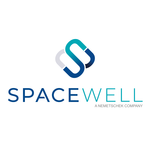Description

SeaMind

SeQure - Integrated Workplace

Spacewell
Comprehensive Overview: SeaMind vs SeQure - Integrated Workplace vs Spacewell
Spacewell, a part of the Nemetschek Group, offers several innovative solutions designed to enhance workplace management and building operations. Among its solutions, SeaMind and SeQure are notable products, each serving distinct functions within the broad category of integrated workplace management. Here’s a comprehensive overview:
a) Primary Functions and Target Markets
SeaMind
- Primary Functions:
- SeaMind is designed to offer advanced analytics for smart building operations. It integrates IoT, AI, and data analytics to provide insights on space usage, energy management, and occupancy trends. This helps organizations optimize their buildings for efficiency, sustainability, and better user experiences.
- Target Markets:
- It primarily targets building managers, real estate management firms, and large enterprises looking to optimize their building operations. Sectors such as commercial real estate, corporate offices, and educational institutions are key markets.
SeQure - Integrated Workplace
- Primary Functions:
- SeQure focuses on enhancing workplace safety and enabling secure desk and meeting room bookings. It integrates visitor management, access controls, and pandemic-related safety features to ensure a secure work environment.
- Target Markets:
- SeQure targets corporate offices, governmental organizations, and institutions looking to enhance workplace safety and manage space usage efficiently in a post-pandemic world.
b) Market Share and User Base
Both SeaMind and SeQure serve niche but growing segments within the smart building and Integrated Workplace Management Systems (IWMS) market.
-
Market Share:
- SeaMind has a strong presence in industries focusing on sustainability and operational efficiency due to increasing demand for smart buildings and IoT solutions.
- SeQure gained traction particularly during and after the COVID-19 pandemic, as workplace safety and desk booking systems became critical.
-
User Base:
- Exact figures on market share and user base can vary, but both solutions are respected for their integration capabilities and have a solid reputation backed by Spacewell's established presence in the market.
c) Key Differentiating Factors
-
Functional Focus:
- SeaMind is differentiated by its strong focus on data analytics and operational efficiency within buildings, leveraging IoT to create actionable insights.
- SeQure stands apart with its emphasis on workplace safety, visitor management, and real-time space allocation and booking, making it particularly relevant for adapting to the hybrid work model.
-
Technology Integration:
- SeaMind benefits from its robust analytics engine and ability to integrate various data sources to drive sustainability initiatives.
- SeQure’s integration with access control systems and its focus on safety-oriented features make it a unique solution for businesses adapting to new workplace norms.
-
User Experience:
- For SeaMind, the primary users include building operators and facilities managers focusing on data-driven decision-making.
- SeQure is designed for day-to-day use by employees, HR managers, and safety officers, providing an interface that supports easy booking and safe access management.
In summary, while both products aim to improve building and workplace management, SeaMind focuses on analytical insights for operational efficiency, whereas SeQure emphasizes safety and space management, particularly in response to dynamic workplace needs brought about by recent global changes. Both cater to different aspects of integrated workplace management, appealing to specific needs and market demands.
Contact Info

Year founded :
Not Available
Not Available
Not Available
Not Available
http://www.linkedin.com/company/seanind-pte-ltd

Year founded :
Not Available
Not Available
Not Available
Not Available
Not Available

Year founded :
2007
+971 4 447 7301
Not Available
United Arab Emirates
http://www.linkedin.com/company/spacewell-interiors
Feature Similarity Breakdown: SeaMind, SeQure - Integrated Workplace, Spacewell
To provide a detailed feature similarity breakdown for SeaMind, SeQure - Integrated Workplace, and Spacewell, let's explore these aspects:
a) Core Features in Common
-
Workplace Management:
- All three platforms offer solutions aimed at optimizing workplace management. This includes space utilization, resource allocation, and employee scheduling.
-
Real-time Data Analytics:
- Each platform provides real-time data analytics to help organizations make informed decisions. This includes tracking occupancy rates, energy consumption, and other operational metrics.
-
Integration Capabilities:
- They support integration with existing enterprise systems such as ERP, HRMS, and IoT devices, offering seamless connectivity and data exchange.
-
User and Access Management:
- These platforms typically offer user and access management features that allow administrators to define roles, set permissions, and ensure security across the system.
-
Mobile Access:
- Each provides mobile access to their platforms, allowing users to manage and monitor workplace environments from anywhere.
b) User Interfaces Comparison
-
SeaMind:
- Known for its intuitive dashboard and user-friendly design. The interface often highlights efficiency and ease of navigation, with customizable widgets and clean layouts.
-
SeQure - Integrated Workplace:
- Focuses on providing a sleek, modern interface with an emphasis on streamlined operations. It usually incorporates drag-and-drop functionalities and offers a more visual approach to data with graphs and charts.
-
Spacewell:
- Offers a robust UI designed to cater to complex facility management needs. Its interface often emphasizes detail, offering comprehensive views and extensive reporting capabilities with intricate graphics and detailed data representation.
c) Unique Features
-
SeaMind:
- AI-Powered Insights: SeaMind stands out with its advanced AI algorithms that provide predictive insights and proactive suggestions based on historical data patterns.
-
SeQure - Integrated Workplace:
- Visitor Management System: SeQure offers a unique visitor management system that oversees guest check-ins, badge printing, and visitor tracking, enhancing security and convenience.
-
Spacewell:
- BIM Integration: Spacewell supports Building Information Modeling (BIM) integration, giving it an edge in managing infrastructure projects and enhancing the strategic planning of building operations.
These differentiators help each product cater to specific market needs, allowing businesses to choose solutions that best fit their operational requirements.
Features

Not Available

Not Available

Not Available
Best Fit Use Cases: SeaMind, SeQure - Integrated Workplace, Spacewell
To determine the best fit use cases for SeaMind, SeQure - Integrated Workplace, and Spacewell, let's explore each product's typical applications, strengths, and the specific scenarios where they excel:
a) SeaMind
Best Fit for:
- Types of Businesses/Projects: SeaMind is particularly well-suited for organizations that require advanced data analytics, AI-driven insights, and decision-making tools. This includes sectors such as finance, healthcare, technology, and large-scale manufacturing where data plays a crucial role in strategy and operations.
Use Cases:
- Data-Driven Projects: Ideal for businesses focusing on big data analytics, AI implementation, and machine learning projects.
- Strategic Decision Making: Companies seeking enhanced insights for strategic business decisions.
- Optimization Needs: Projects that require process optimization and predictive analytics.
b) SeQure - Integrated Workplace
Preferred Scenarios:
- Types of Businesses/Projects: SeQure is optimal for companies emphasizing workplace safety, seamless facility management, and hybrid work solutions. This includes corporate offices, co-working spaces, and enterprises prioritizing employee safety and well-being.
Use Cases:
- Hybrid Work Solutions: Ideal for organizations transitioning to hybrid workplace models.
- Safety and Compliance: Sectors with stringent safety compliance needs, such as healthcare and manufacturing.
- Facility Management: Businesses requiring comprehensive tools to manage workplace facilities efficiently.
c) Spacewell
Considered Over Others When:
- Types of Businesses/Projects: Spacewell is best suited for businesses focusing on smart building management, including real estate, facility management, and companies needing IoT integration for property operations.
Use Cases:
- Smart Building Projects: Real estate firms and facility managers looking for solutions to enhance building intelligence.
- Energy and Sustainability Management: Companies that prioritize sustainability and efficient resource management.
- Workplace Experience Enhancement: Organizations interested in improving occupant experience through smart technology.
d) Catering to Industry Verticals and Company Sizes
-
SeaMind: Serves large enterprises and sectors heavily reliant on data. Its advanced analytics capabilities make it suitable for complex industries like finance, healthcare, and tech regardless of company size.
-
SeQure - Integrated Workplace: Targets mid to large-sized enterprises across various sectors emphasizing health and safety, such as healthcare, education, and corporate sectors. The flexibility to manage workspaces adapts well to various company scales.
-
Spacewell: Focuses on industries like real estate and large facility management operations, applicable to both large properties and organizations striving for smarter building solutions. It suits any company size but particularly benefits those managing extensive property portfolios.
By understanding these differentiators, businesses can align their project needs with the appropriate solution, whether optimizing data analytics with SeaMind, improving workplace safety with SeQure, or enhancing smart building management with Spacewell.
Pricing

Pricing Not Available

Pricing Not Available

Pricing Not Available
Metrics History
Metrics History
Comparing teamSize across companies
Conclusion & Final Verdict: SeaMind vs SeQure - Integrated Workplace vs Spacewell
When considering SeaMind, SeQure - Integrated Workplace, and Spacewell, it's important to evaluate each product based on its value proposition, strengths, and potential drawbacks. Here’s an analysis that can help you arrive at a conclusion about which product offers the best overall value, the pros and cons of each, and recommendations for prospective users:
Best Overall Value
a) Best Overall Value:
- When determining the best overall value, it's critical to consider factors like cost-effectiveness, feature set, ease of use, scalability, customer support, integration capabilities, and the specific needs of the user or organization.
- Spacewell often stands out in the realm of integrated workplace management systems (IWMS) due to its comprehensive suite of features that cater to facility management, workplace optimization, and smart building technology. Its focus on data analytics and IoT can provide significant value for organizations looking to optimize space usage and enhance facility operations.
Pros and Cons
b) Pros and Cons:
SeaMind:
- Pros:
- Tailored solutions for specific industries, potentially offering specialized functionality.
- Emphasis on data-driven decision-making, enhancing operational efficiency.
- May offer intuitive, user-friendly interfaces.
- Cons:
- Potentially less comprehensive in feature set compared to some competitors.
- May require more customization to meet specific needs, which could increase implementation time and cost.
SeQure - Integrated Workplace:
- Pros:
- Strong focus on security and visitor management, appealing to organizations with specific security concerns.
- Integration with existing infrastructure might be seamless, enhancing deployment.
- Emphasizes user-friendly interfaces and ease of navigation.
- Cons:
- Security-focused features may not be necessary for all users, which could limit broader appeal.
- Could lack broader facility management functionalities compared to competitors.
Spacewell:
- Pros:
- Comprehensive suite of tools for facility management, space optimization, maintenance, and smart building integration.
- Strong data analytics and Internet of Things (IoT) capabilities.
- High scalability, suitable for both small and large organizations.
- Cons:
- Might have a steeper learning curve for users unfamiliar with integrated facility management systems.
- Potentially higher upfront costs, which might be a consideration for smaller businesses.
Recommendations
c) Recommendations:
- Organization Type: Assess the nature of your organization. If your priority is robust security and visitor management, SeQure may be the right fit. For a focus on comprehensive facilities management and future scaling, Spacewell is a strong contender.
- Specific Needs: Clearly define what your organization needs from an IWMS. If tailored solutions for specific industry demands are a priority, and you're looking for data-driven insights, SeaMind might offer what you need.
- Budget Considerations: Evaluate your budget. Consider not just the initial costs, but also potential long-term value, scalability, and cost efficiencies gained.
- Deployment and Integration: Consider how each system will integrate with your existing infrastructure and the time/cost involved in deployment.
Ultimately, while SeaMind, SeQure, and Spacewell each offer unique strengths, Spacewell may provide the best overall value for organizations looking for a comprehensive, scalable solution that enhances facility and space management through advanced analytics and smart technologies. However, specific organizational needs and priorities should guide the final choice.